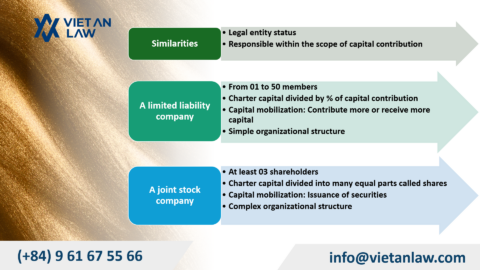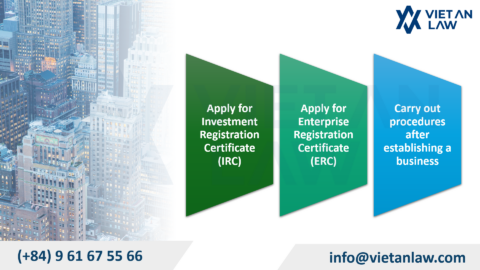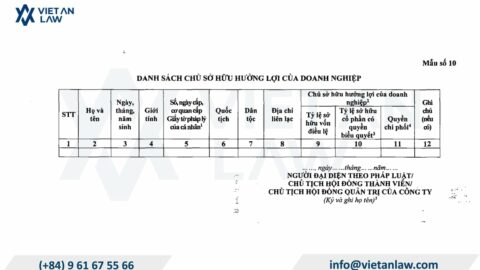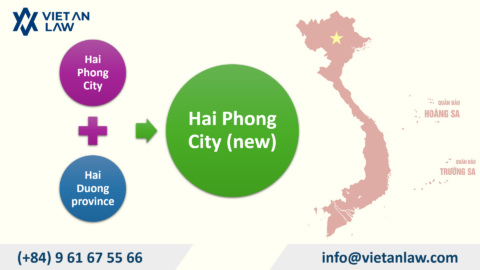In the context of deep economic integration and an increasing inflow of foreign investment capital, Japanese-invested companies in Vietnam are continuously expanding their scale, adjusting business strategies, and restructuring their organizations to adapt to the market. These changes often necessitate amending the content of their Investment Registration Certificates – an administrative procedure that demands precision and strict adherence to current legal regulations. With many years of experience in foreign investment law, Viet An Law provides clients with some information about Japanese-invested companies: Investment Certificate adjusting services in Vietnam.
Table of contents
As of the end of January 2025, Japan ranks among the top three countries and territories with the largest total foreign direct investment in Vietnam. It has a total of 5,512 active projects, with a total registered capital of 78.28 billion USD.
In January 2025, Japanese investors registered a total foreign direct investment (FDI) capital of nearly USD 600 million. This includes 21 new projects with a total capital of 52.12 million USD, 13 capital adjustment projects with an additional capital of 529.68 million USD, and 14 capital contribution/share purchase transactions with a total capital of 17.30 million USD.
The main investment sectors of Japan in Vietnam include manufacturing and processing, energy, trade services, education, and real estate. Particularly, the manufacturing and processing sector dominates, with the participation of major corporations such as Honda, Toyota, Canon, and Yamaha.
Additionally, Japan is the fourth-largest ODA donor to Vietnam, with numerous large projects in infrastructure, industrial development, and human resource training.
As stipulated in Article 41 of the Law on Investment 2020, foreign investors in general, and Japanese investors in particular, must carry out procedures to amend their Investment Registration Certificates when the adjustment of an investment project changes the content of the Investment Registration Certificate.
Specifically, Article 40 of the Law on Investment 2020 explicitly lists the contents of an Investment Registration Certificate, which include:
For investment projects subject to investment policy approval, before carrying out the procedure to amend the Investment Registration Certificate, Japanese investors need to adjust the investment project to obtain approval for the adjusted investment policy from the competent authority. This procedure also depends on the authority competent to approve the investment policy of that project.
After the competent authority has approved the investment policy, following Clause 1, Article 35 of Decree 31/2021/ND-CP, according to the decision on approval for investment guidelines, the investment registration authority shall issue and adjust the investment registration certificate within 05 working days from the receipt of the decision on approval for investment guidelines.
According to the provisions of Article 35 and Article 74 of Decree 31/2021/ND-CP regarding the procedures for amending Investment Registration Certificates in general and Investment Registration Certificates for Japanese-invested companies, the process is as follows:
In case of adjusting other contents of the investment project:
Documents such as decisions, authorizations, or financial documents issued in Japan must be consularly legalized at the competent Vietnamese authority in Japan, and then notarized and translated into Vietnamese to ensure their validity. This process can pose some difficulties for Japanese investors as it not only requires time but also demands that documents be prepared strictly in accordance with Japanese law and consistent with Vietnamese legal requirements.
Internal procedures in Japanese enterprises are often organized with clear decentralization and an emphasis on collective appraisal. Decisions to adjust investment content typically go through multiple steps of review and approval, from specialized departments to corporate management levels. This can increase the time required for dossier preparation compared to some other investors, especially when consistency is needed between the parent company in Japan and the legal entity in Vietnam.
In some cases, identifying the legally authorized representative to sign documents for investment procedures in Vietnam can also cause difficulties. This stems from differences in governance models between Japanese enterprises and investment legal entities in Vietnam, especially when the parent company does not directly hold management roles.
Above is the advice of Viet An Law on the issue of Japanese-Invested Companies: Investment Certificate Adjusting Services in Vietnam. Clients who have related questions or need legal support, please contact Viet An Law Firm for the best support!




